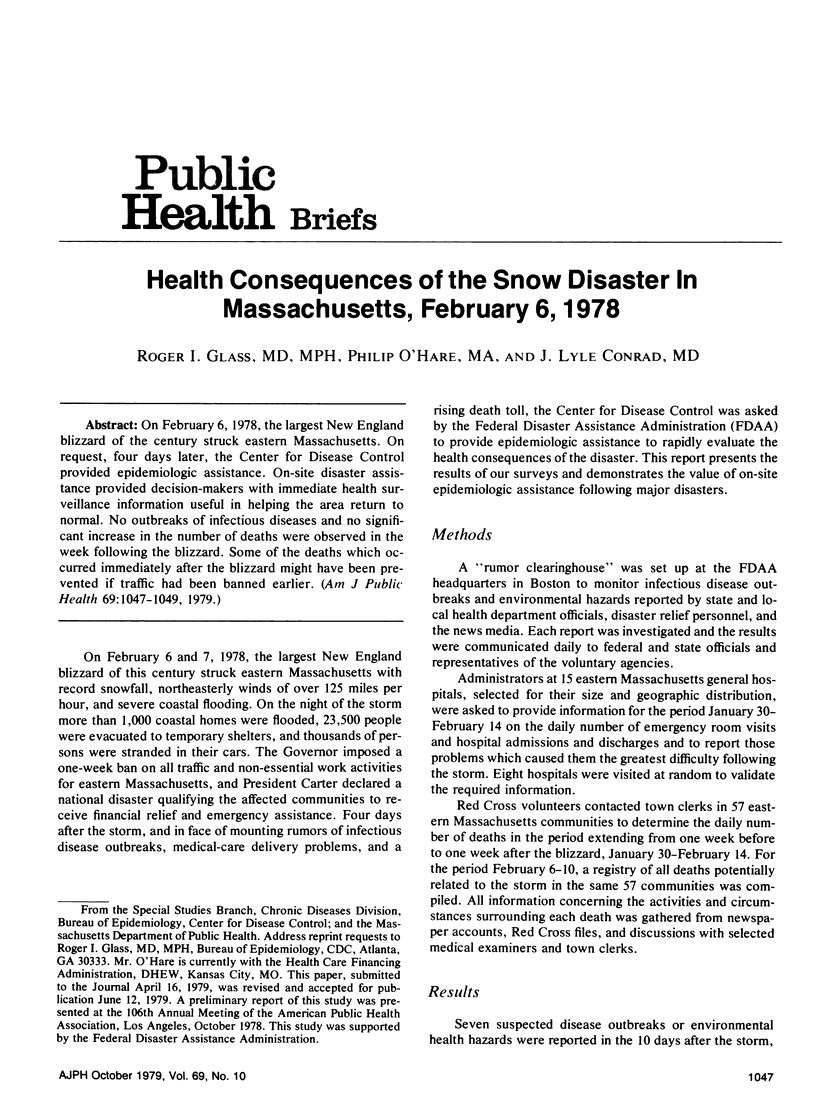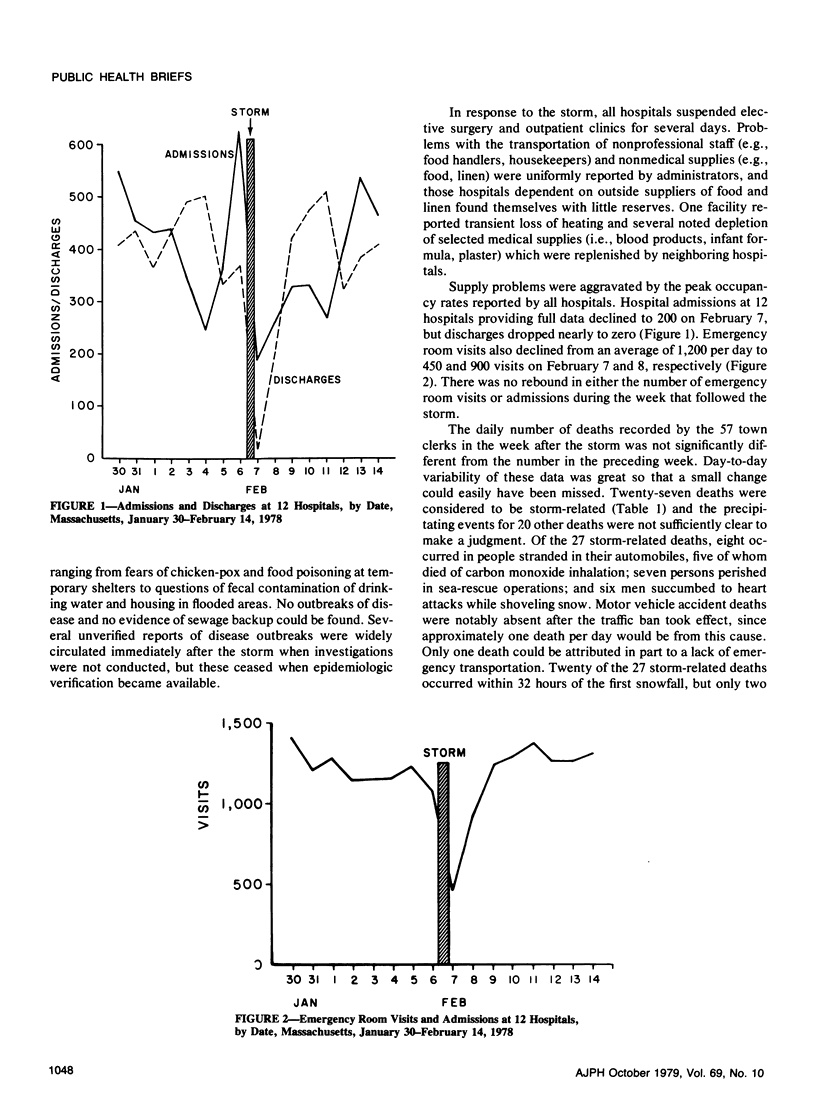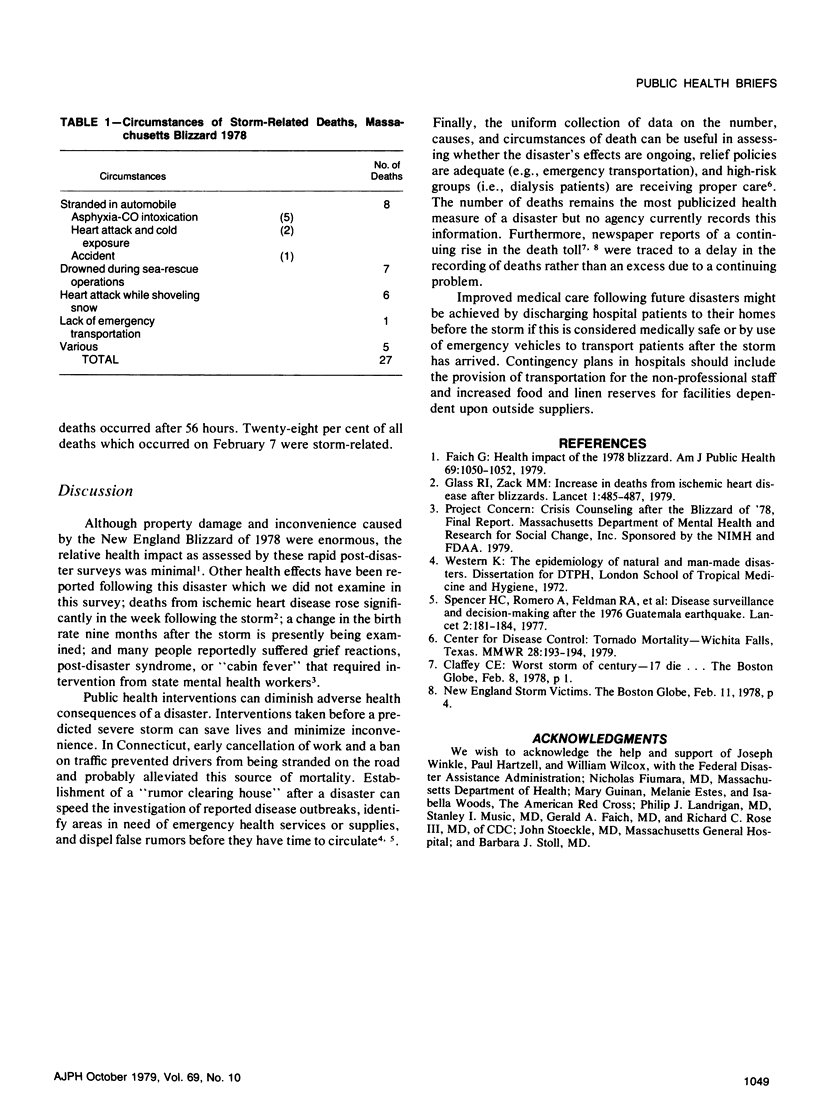Abstract
On February 6, 1978, the largest New England blizzard of the century struck eastern Massachusetts. On request, four days later, the Center for Disease Control provided epidemiologic assistance. On-site disaster assistance provided decision-makers with immediate health surveillance information useful in helping the area return to normal. No outbreaks of infectious diseases and no significant increase in the number of deaths were observed in the week following the blizzard. Some of the deaths which occurred immediately after the blizzard might have been prevented if traffic had been banned earlier.
Full text
PDF


Selected References
These references are in PubMed. This may not be the complete list of references from this article.
- Faich G., Rose R. Blizzard morbidity and mortality: Rhode Island, 1978. Am J Public Health. 1979 Oct;69(10):1050–1052. doi: 10.2105/ajph.69.10.1050. [DOI] [PMC free article] [PubMed] [Google Scholar]
- Glass R. I., Zack M. M., Jr Increase in deaths from ischaemic heart-disease after blizzards. Lancet. 1979 Mar 3;1(8114):485–487. doi: 10.1016/s0140-6736(79)90835-3. [DOI] [PubMed] [Google Scholar]
- Spencer H. C., Campbell C. C., Romero A., Zeissig O., Feldman R. A., Boostrom E. R., Long E. C. Disease-surveillance and decision-making after the 1976 Guatemala earthquake. Lancet. 1977 Jul 23;2(8030):181–184. doi: 10.1016/s0140-6736(77)90193-3. [DOI] [PubMed] [Google Scholar]


